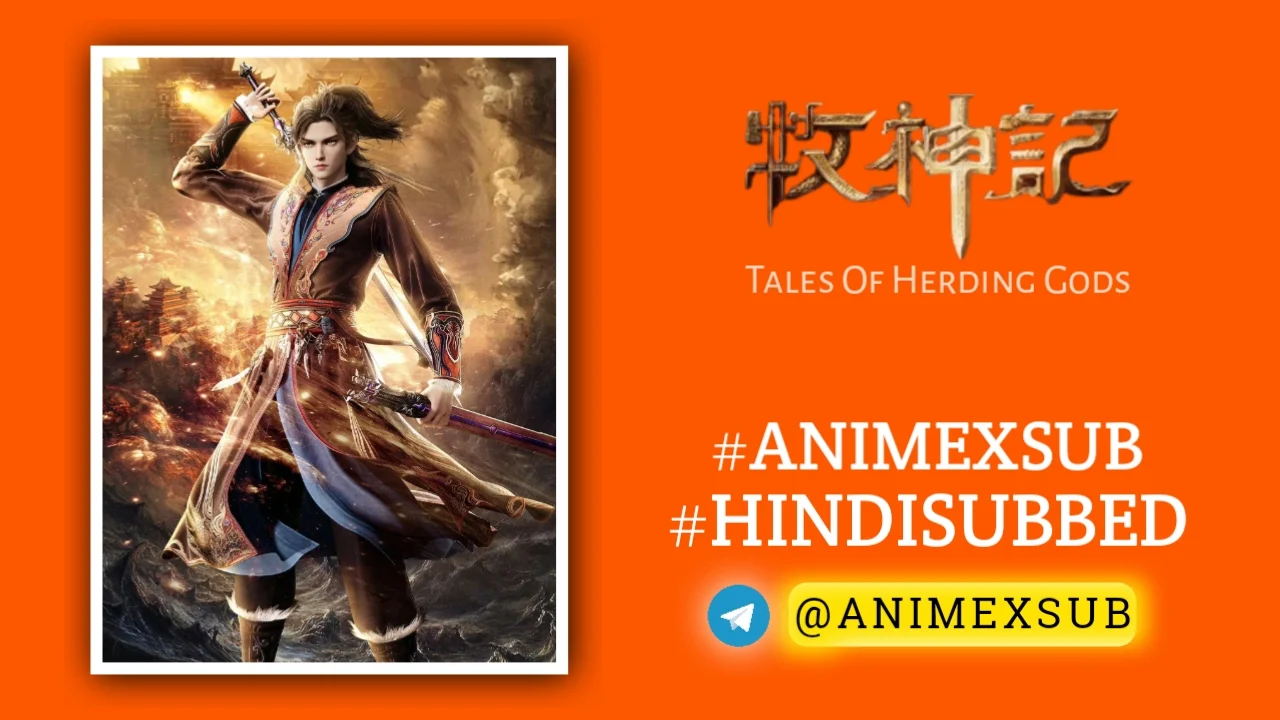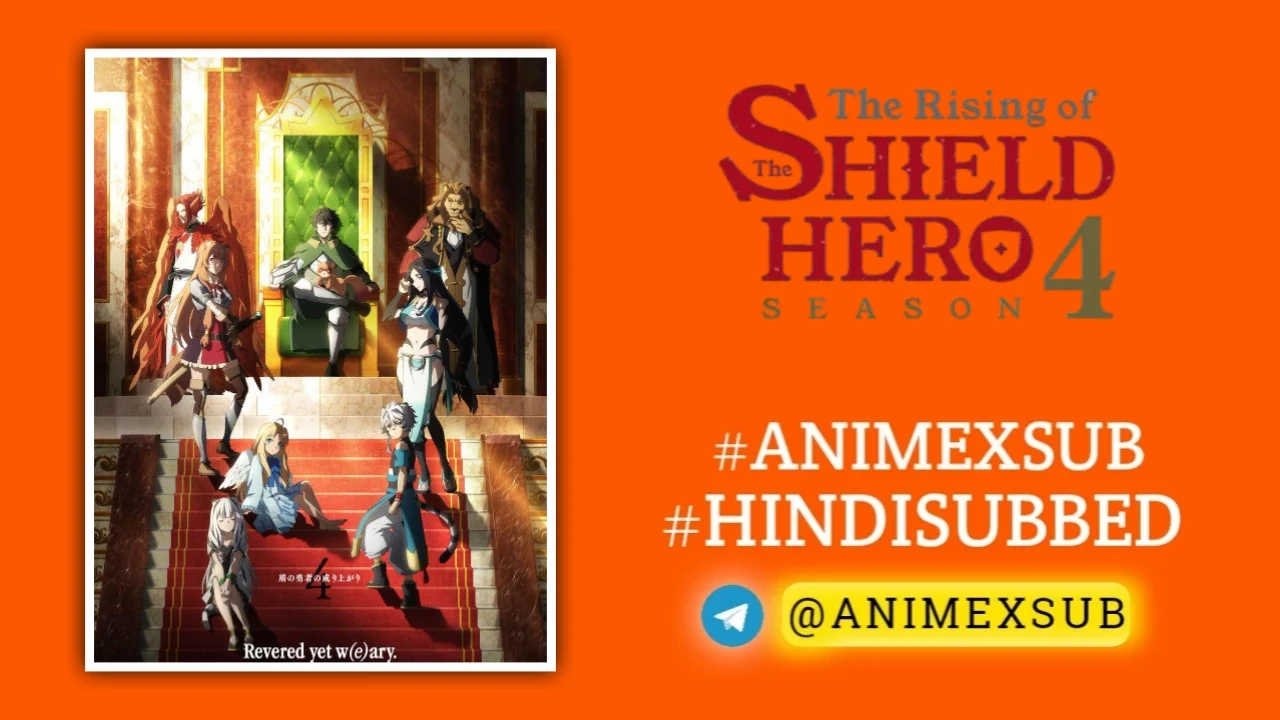
Tales of Herding Gods Season 1-2 Hindi Subbed [42/??] | Mushen Jin 2 Hindi Sub!!

Mu Shen Ji 2
Synopsis
The second season of Mu Shen Ji.
Tales of Herding Gods Season 2: A Mythic Evolution of Storytelling and World-Building
Tales of Herding Gods (Mushen Ji), the Chinese xuanhuan donghua, has returned with its second season, continuing the saga of Qin Mu, the boy raised by the enigmatic elders of Disabled Elderly Village. Season 2, which premiered in 2025, builds on the foundation laid by its predecessor, delivering a narrative that transcends the conventions of the cultivation genre. This article dives deep into what makes Season 2 a standout, exploring its narrative depth, visual artistry, character development, and thematic richness, while steering clear of promotional fluff. Drawing from fan discussions, critical reviews, and the show’s own merits, this review aims to provide a fresh, analytical perspective on why Tales of Herding Gods Season 2 is a next-level achievement in donghua storytelling.
A Narrative That Defies Predictability
Season 2 of Tales of Herding Gods takes the groundwork established in Season 1 and propels it into uncharted territory. The story follows Qin Mu as he navigates the treacherous and fantastical world of Daxu, a land abandoned by gods, where demons, divine bones, and ancient ruins shape a chaotic backdrop. Unlike many cultivation narratives that rely on repetitive tropes—such as endless tournaments or predictable power-ups—Season 2 weaves a tapestry of interconnected plotlines that keep viewers guessing. The narrative is less about Qin Mu’s raw power and more about his role as a catalyst for change in a world steeped in tradition and conflict.
The season delves deeper into the political and philosophical undercurrents introduced in Season 1. Qin Mu, now the leader of the Heavenly Demon Sect and a figure of controversy, grapples with his identity as a supposed “villain.” The show challenges the viewer’s perception of morality, presenting a world where progressivism clashes with tradition, and no faction is entirely good or evil. This moral ambiguity is a refreshing departure from the black-and-white dynamics of many donghua, reminiscent of the complex rivalries in Game of Thrones but grounded in a distinctly Chinese mythological framework.
A standout aspect of Season 2 is its ability to connect seemingly minor details from earlier episodes into major plot revelations. The show rewards attentive viewers with callbacks to Season 1, such as the significance of the Disabled Elderly Village elders’ pasts or the mysterious origins of Qin Mu’s jade pendant. These elements, initially dismissed as background flavor, converge to create jaw-dropping moments that reframe the entire narrative. This intricate plotting elevates Tales of Herding Gods above its peers, making it a donghua that demands active engagement rather than passive consumption.
Visual Splendor and Choreographic Mastery
Visually, Season 2 is a triumph of 3D animation, courtesy of Sparkly Key Animation Studio. The studio has refined its craft, delivering some of the most breathtaking visuals in recent donghua. Every frame is meticulously designed, with vibrant landscapes, intricate character designs, and dynamic battle sequences that rival the best in the genre. The world of Daxu feels alive, from the eerie glow of divine ruins to the bustling streets of the Eternal Peace Empire. Fans on platforms like Reddit have praised the “poster-worthy” quality of each shot, noting the attention to detail in textures, lighting, and motion.
The fight choreography is a particular highlight. Unlike many 3D donghua where battles can feel stiff or overly reliant on CGI spectacle, Season 2’s action scenes are fluid and creative. Qin Mu’s battles showcase his unorthodox techniques, blending the skills imparted by his nine elders with his own ingenuity. The choreography avoids the common pitfall of overpowered protagonists steamrolling opponents; instead, fights are strategic, with outcomes hinging on wit and adaptability. However, some viewers have noted that the rapid pacing of battles can make it hard to track new abilities, as Qin Mu’s skill acquisition sometimes feels abrupt. Despite this, the visual dynamism keeps the action engaging.
Character Depth: Beyond the Cultivation Clichés
One of Tales of Herding Gods’ greatest strengths is its ensemble cast, and Season 2 doubles down on this. Qin Mu remains a compelling protagonist—not a flawless “Gary Sue” but a flawed, curious, and mischievous figure whose growth feels earned. His journey is less about becoming the strongest and more about navigating the responsibilities of leadership and the moral complexities of his actions. Unlike typical cultivation heroes, Qin Mu’s strength is matched by equally powerful peers and mentors, ensuring he faces setbacks that keep him relatable.
The supporting cast is equally impressive. The elders of Disabled Elderly Village, each with their own storied pasts, receive more screen time in Season 2, fleshing out their motivations and histories. Granny Si, for instance, emerges as a fan favorite, her enigmatic beauty and tragic backstory adding layers to her role as Qin Mu’s guardian. Fans on Reddit have expressed curiosity about her arc, hoping for a resolution that does justice to her complexity. Other characters, like the Imperial Preceptor and the antagonistic Pangong Tso, are portrayed with nuance, avoiding the one-dimensional villainy common in the genre. Even minor characters feel like real people, with evolving worldviews and personal stakes.
However, the large cast can be a double-edged sword. Some viewers have pointed out that the sheer number of characters introduced in Season 2, combined with the complex lore, can feel overwhelming. Underdeveloped side characters occasionally get lost in the shuffle, a minor flaw in an otherwise stellar character-driven narrative.
A Cultivation System That Redefines the Genre
The cultivation system in Tales of Herding Gods continues to be a standout feature in Season 2. Unlike traditional systems that treat cultivation as a linear progression of power levels, this donghua presents it as an evolving science, akin to technological advancement. Qin Mu’s journey involves not just personal growth but also revolutionizing cultivation itself, challenging outdated practices and fostering cooperation among sects. This focus on systemic change sets the show apart from peers like Perfect World or Battle Through the Heavens, where power often trumps plot.
Season 2 introduces new layers to this system, exploring how cultivation intersects with politics and society. The Heavenly Demon Sect’s unorthodox methods are pitted against traditionalist factions, creating a narrative that feels less like a power fantasy and more like a critique of stagnation. Fans on r/noveltranslations have lauded this approach, noting that it makes cultivation feel integral to the story rather than a mere plot device. However, the system’s complexity can be a barrier for casual viewers, as the show doesn’t always pause to explain new concepts.
Thematic Richness: Progress vs. Tradition
At its core, Season 2 is a meditation on progress versus tradition, a theme that resonates deeply in a genre often obsessed with individual power. Qin Mu’s actions as the Heavenly Demon Sect’s leader challenge the status quo, sparking debates about reform, authority, and the cost of change. The show doesn’t shy away from showing the consequences of his choices, whether it’s alienating allies or inciting conflict. This thematic depth, combined with the moral grayness of its factions, elevates Tales of Herding Gods to a level of sophistication rarely seen in donghua.
The season also explores identity and belonging, particularly through Qin Mu’s struggle to reconcile his upbringing with his destiny. His connection to the “Son of Youdu” and his separation from his original body (revealed in the novel at Chapter 891) add a layer of existential intrigue that Season 2 begins to unpack. While the donghua hasn’t yet reached this point, subtle hints suggest it’s building toward these revelations, keeping viewers invested in Qin Mu’s personal journey.
Criticisms and Room for Improvement
No show is without flaws, and Season 2 has its share. The pacing, while improved from Season 1, can still feel rushed, particularly in moments where the narrative juggles multiple factions and subplots. Some fans on MyAnimeList have noted that the lack of a clear sense of time progression makes it hard to gauge the scope of Qin Mu’s journey. Additionally, the dense lore and rapid introduction of new characters can alienate viewers who aren’t familiar with the novel or Season 1.
The show also struggles with balancing its ambition with accessibility. While its complexity is a strength, it risks alienating casual audiences who may find the intricate world-building and cultivation mechanics daunting. A more gradual onboarding of new concepts could make Season 2 more approachable without sacrificing depth.
Why Season 2 Stands Out
Tales of Herding Gods Season 2 is a masterclass in pushing the boundaries of the cultivation genre. Its unpredictable plot, nuanced characters, and innovative cultivation system create a narrative that feels fresh and ambitious. The visuals and choreography are among the best in recent donghua, and the thematic exploration of progress, morality, and identity adds a layer of intellectual heft. While it’s not without flaws—pacing issues and a steep learning curve for newcomers—it’s a bold step forward for the medium.
For fans of epic fantasy, Tales of Herding Gods Season 2 is a must-watch, offering a world that’s as majestic as it is mysterious. It’s not just a continuation but an evolution, proving that donghua can rival the best of global animation in storytelling and artistry. Whether you’re a seasoned novel reader or a donghua enthusiast, this season delivers a journey that’s both visually spectacular and intellectually stimulating, setting a new benchmark for what cultivation stories can achieve.1
Support Our Anime Community!
Love watching the latest anime? Help us keep uploading new episodes by join telegram channel ❤️
Join Now!




